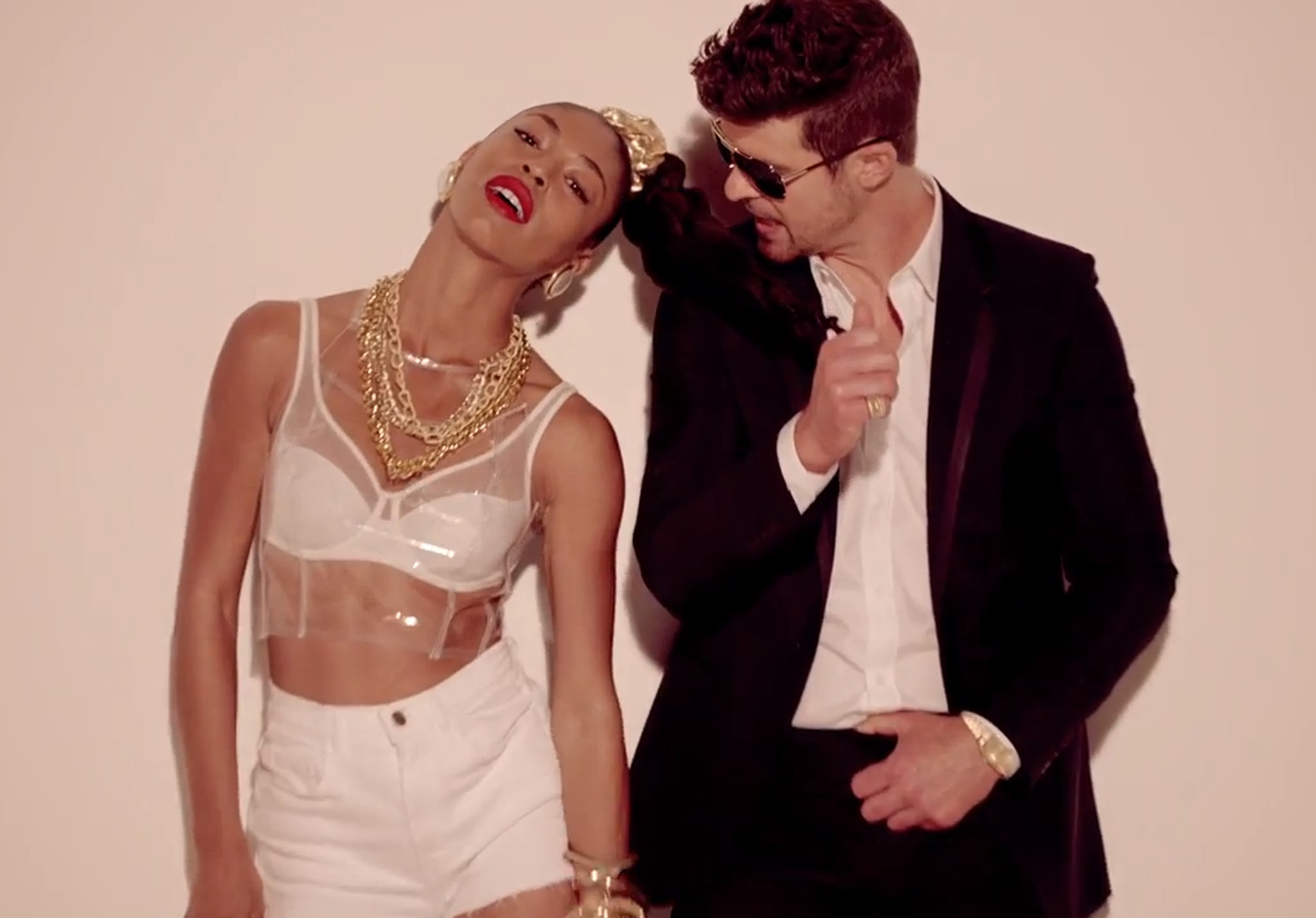Ah, 2013. A simpler time, four years before #MeToo went viral on social media, back when Robin Thicke and Pharrell Williams’ rapey bop “Blurred Lines” was considered acceptable (in fact, it was the longest-running #1 single of that year).
If you’ll recall, some of the more questionable lyrics included Thicke’s whining, “I know you want it / But you’re a good girl / The way you grab me / Must wanna get nasty.” The choral refrain of “I know you want it” is repeated ad nauseam through the track, a phrase many women have heard as justification for everything from unwanted attention to sexual assault. That a victim was “asking for it” because she wore a short skirt or flirted or got drunk is an excuse the Brock Turners of the world have been using for years.
The “Blurred Lines” video features a parade of models prancing in front of Mr. Thicke, who stands and watches them. The whole set-up feels suitably predatory, especially the way Thicke sort of sings into their ears and shoves his lips into their necks whilst they look helplessly at the camera.
Though both Thicke and Pharrell have defended the song against valid criticism in the past, Pharrell claims in a new GQ interview that he finally “gets it.” He struggled at first to understand why the song’s message was sinister, especially because of its popularity; but following the ubiquity of the #MeToo movement, he has accessed empathy and reconsidered how the lyrics might objectify women. His statement:
I think “Blurred Lines” opened me up. I didn’t get it at first. Because there were older white women who, when that song came on, they would behave in some of the most surprising ways ever. And I would be like, wow. They would have me blushing. So when there started to be an issue with it, lyrically, I was, like, What are you talking about? There are women who really like the song and connect to the energy that just gets you up. And I know you want it — women sing those kinds of lyrics all the time. So it’s like, What’s rapey about that?
And then I realized that there are men who use that same language when taking advantage of a woman, and it doesn’t matter that that’s not my behavior. Or the way I think about things. It just matters how it affects women. And I was like, Got it. I get it. Cool. My mind opened up to what was actually being said in the song and how it could make someone feel. Even though it wasn’t the majority, it didn’t matter. I cared what they were feeling too. I realized that we live in a chauvinist culture in our country. Hadn’t realized that. Didn’t realize that some of my songs catered to that. So that blew my mind.
Better late than never. Read the full GQ story here.







